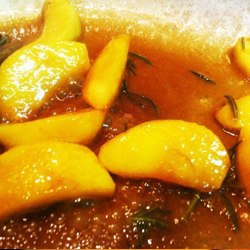La Cucina è cultura

La cucina è cultura, come dimostrato dal fatto che solo gli uomini cucinano i loro alimenti, ed è arte destinata non soltanto a nutrire, ma anche a soddisfare il gusto. Il gusto, come tutto ciò che riguarda la cultura, è prodotto della storia e si modifica a seconda delle epoche e delle latitudini.
Per esempio il gusto della pastasciutta decisamente più cotta di quel che s’usi oggi in Italia, durò a lungo nel tempo ed ancor oggi dura in Germania, dove la pasta viene servita come contorno a piatti di carne, uso questo che era delle corti aristocratiche mentre i poveri dovevano accontentarsi della pasta come piatto unico. E siccome il bisogno aguzza l’ingegno, “Libista" contadina lombarda da Cernuschio, fu l’inventrice di far raffioli avviluppati nella pasta” (Ortensio Lando).
Pertanto pretendere d’applicare la filologia alla cucina, così com’è doveroso fare coi testi letterari, è operazione destinata all’insuccesso perché, ammesso e non concesso che si possano reperire gli stessi ingredienti di cinque o seicento anni fa e che i cuochi siano così volenterosi da studiare ed esercitarsi sui ricettari di Martino da Como o di Bartolomeo Scappi, non ci sarebbero poi i commensali di cinque o seicento anni fa, ed i piatti, filologicamente corretti, non lo sarebbero però dal punto di vista del gusto.
Paolo Bindi
Non di meno possiamo trar soddisfazione a cucinare e mangiare “alla medievale” , ma con le uova, le carni e, soprattutto nei condimenti, con il gusto odierni ed innaffiare il pasto con vini che non dimentichi di antica e nobile tradizione, siano non di meno vini di oggi.
Cooking is culture, as is shown by the fact that only humans cook their food and that the purpose of culinary art is not only to nourish, but also tosatisfy the taste buds. Taste, like everything else related to culture, has evolved over time and changes with the centuries and geographical location.
For example, for a long time people liked their pasta to be much softer than Italians cook it nowadays, and this preference continues in Germany, where pasta is served as an accompaniment to meat dishes. This custom originated in noble families, while the poor had to make do with pasta as their main course. And since need is the mother of invention, “Libista, a farmer’s wife from Lombardy, started making ravioli wrapped in pasta dough.” (OrtensioLando)
Therefore, if we tried to apply philology to cooking,as we might do to literary texts, we would be doomed to failure, because even if we could find the same ingredients as were used five or six hundred years ago and cooks willing to study and follow the recipes described by Martino da Como or Bartolomeo Scappi, the customers would not be the same as five or six hundred years ago, and the dishes, though philologically correct, would not satisfy current tastes.This is not to say we cannot enjoy cooking and eating “medieval style”, but the eggs, meat and,especially the seasonings must comply with today’s tastes, and the meal must be accompanied by winesthat are the result of ancient and noble traditions, but which are very much present day wines.
Paolo Bindi
KOCHEN IST KULTUR
Kochen ist Kultur, das beweist schon die Tatsache, daß nur der Mensch seine Nahrungsmittel veredelt und es ist eine Fertigkeit, die nicht nur dazu dient ihn zu ernähren sondern auch seinen Geschmack zufriedenzustellen.
Der Geschmack, wie alle anderen Aspekte der Kultur, ist ein Produkt der historischen Entwicklung und ändert sich daher mit der Epoche und der Region.
Beispielsweise war es über lange Zeit üblich die Pastasciutta deutlich länger zu kochen als es heute in Italien üblich ist. In Deutschland gilt das heute noch, wo die Nudeln als Beilage zu Fleischspeisen serviert werden, wie es schon an den Adelshöfen üblich war während sich das einfache Volk alleine mit Nudeln zufrieden geben mußte.
Aber Not macht erfinderisch und so wurde Libista, eine lombardische Bauersfrau aus Cernuschio zur Erfinderin der Ravioli, berichtet Ortensio Lando.
Auch wenn man sich bemühen würde so zu kochen wie vor Jahrhunderten und den Rezepten von Martino da Como oder Bartolomeo Scappi folgen wollte, fände man ja die damaligen Zutaten nicht mehr und es wäre vor allem nicht nach unserem Geschmack. Das soll jetzt nicht heißen, daß wir nicht "mittelalterlich" kochen und essen können, aber mit Eiern, Fleisch und vor allem gewürzt nach heutigem Geschmack; die Weine die solche Mahle
begleiten können zwar alte und vornehme Traditionen nachahmen sind und bleiben jedoch Weine von heute.
(Frei übersetzter Blog von Paolo Bindi)